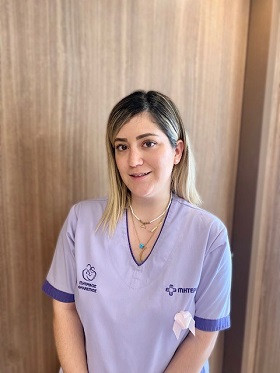Written by the MITERA Breastfeeding Team – Kapentzoni Eftychia – Midwife, Certified Breastfeeding Consultant MITERA (KEDIVIM-PADA) Pezou Eleni – Midwife, Certified Breastfeeding Consultant MITERA (KEDIVIM-PADA)
Over time, there have been several studies that focus on human health and the prevention of diseases such as diabetes mellitus, hypertension, coronary heart disease, certain forms of cancer, osteoporosis, stroke and many other diseases, with the object of study the diet. Poor nutrition and lack of physical activity are global risks and are closely linked to poor human health.
Counseling for a healthy diet in children is similar to that recommended for adults. Already, from the initial stages of human life, right after birth, it is important to start with healthy nutritional practices, such as breastfeeding, which promotes the healthy development of the infant, improves its cognitive development and can have long-term health benefits.
As typically stated by the WHO, breastfeeding is the ideal food for infants. Breast milk is the exclusive food for the first 6 months of the infant’s life, it continues alongside solid foods for at least 2 years and for as long as the mother and her infant wish.
From the age of 6 months, breast milk should be supplemented with a variety of adequate, safe and nutritious foods that do not include added salt and sugars. In 1981 the WHO and the World Health Assembly adopted the International Code of Marketing of Breast-milk Substitutes, which is an international recommendation to regulate the marketing and promotion of breast-milk substitutes as well as the creation of the 10 steps to successful breastfeeding, which are practical which when implemented by the structures (Hospitals, health professionals etc.) protect, promote and promote breastfeeding in families and to mothers who decide to breastfeed.
WABA (World Alliance for Breastfeeding Action) is a global network of individuals and organizations, based on the WHO/UNICEF Global Strategy on Infant and Young Child Feeding, which aims to protect, promote and support breastfeeding through actions and actions in structures, bodies and organizations of every state around the world. The most widespread action is the celebration of World Breastfeeding Week, which takes place in the first week of August worldwide, while in Greece it is set to be celebrated from November 1st to 7th every year. During this period, public actions are carried out such as briefings, conferences, conferences and events related to breastfeeding with the aim of informing people about the benefits of breast milk for the health of the mother, the infant, the family, society and of the environment.
“Closing the Gap – Supporting Breastfeeding for All” is this year’s designated message for the Breastfeeding Promotion Campaign and focuses on the survival, health and well-being of infants, children and mothers and will highlight the need for improved support for breastfeeding, particularly by health professionals and the structures that deal with parenthood, to reduce the inequalities that exist in our society, emphasizing vulnerable groups, especially breastfeeding in times of emergency and crises.
Midwives, Obstetricians-Gynecologists and Paediatricians are the health professionals who are in direct contact with the family – mother – infant and should work as a team with a common policy to support the mother in breastfeeding and use the best practices against during pregnancy, childbirth and labor in order to achieve the best way to start, consolidate and continue breastfeeding.
Source :Skai
I have worked in the news industry for over 10 years. I have a vast amount of experience in covering health news. I am also an author at News Bulletin 247. I am highly experienced and knowledgeable in this field. I am a hard worker and always deliver quality work. I am a reliable source of information and always provide accurate information.











